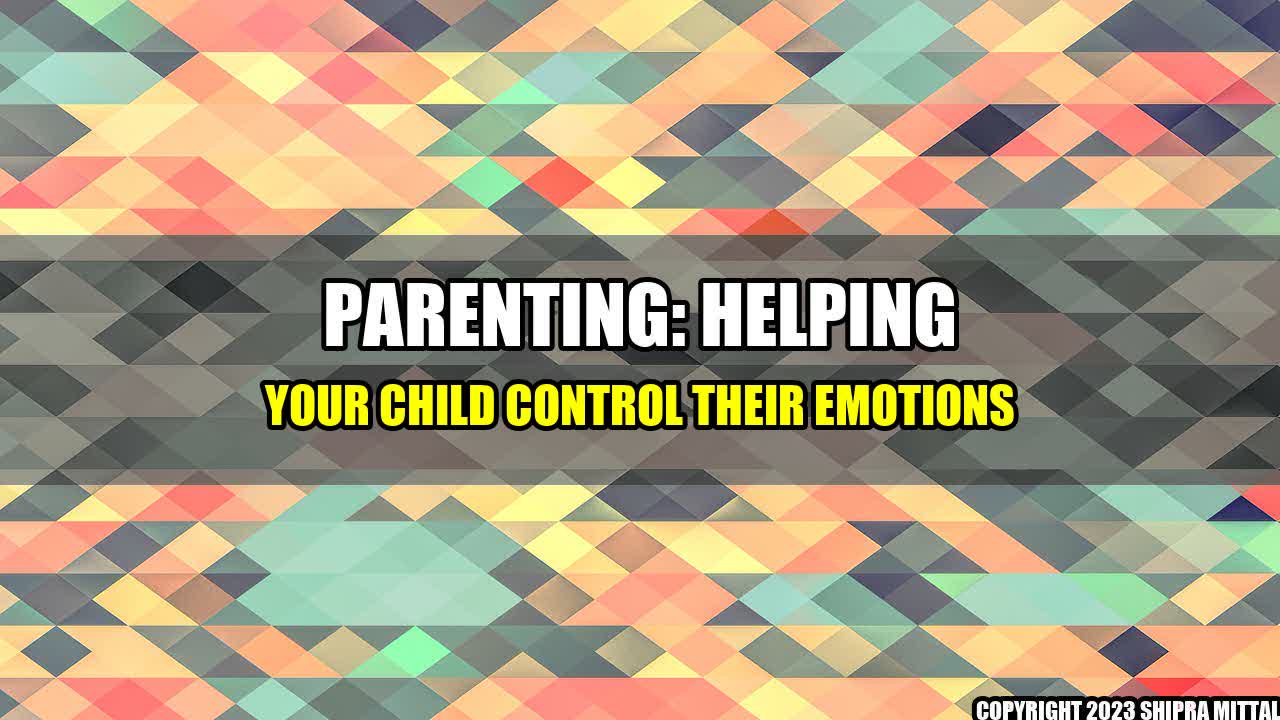

John was a loving and caring father of a 6-year-old boy named Tom. Tom was a bright and energetic child, but he had a hard time controlling his emotions. Whenever Tom got upset or frustrated, he would lash out and sometimes even hurt himself. John was at a loss as to how to help his son. He tried talking to him, disciplining him, and even seeking professional help, but nothing seemed to work. He felt helpless and worried that something was seriously wrong with his child.
Many children struggle with emotional regulation, which is the ability to manage or control their emotions in an appropriate manner. This can manifest in behaviors such as temper tantrums, crying fits, aggression, and even self-harm. It is important for parents to help their children develop the tools and skills they need to regulate their emotions so that they can lead healthy and fulfilling lives.
Research has shown that children who have difficulty regulating their emotions are at risk for developing a range of mental health issues, such as anxiety, depression, and ADHD. These children may also struggle in social situations, have poor academic performance, and experience difficulty forming healthy relationships in the future.
It can be overwhelming to know how to help your child when they are struggling with emotional regulation. Here are some practical tips that may be helpful:
Remember that helping your child develop emotional regulation is a process that takes time and patience. It is important to celebrate even small successes along the way and to be consistent and persistent in your efforts.
In conclusion, teaching your child emotional regulation skills is an essential part of parenting. By identifying triggers, teaching coping strategies, and modeling healthy emotional expression, you can help your child lead a happy and successful life. Remember that every child is unique and may require different approaches, but with love, patience, and support, you can help your child learn to regulate their emotions and thrive.
Parenting, Child Psychology, Mental Health
Curated by Team Akash.Mittal.Blog
Share on Twitter Share on LinkedIn